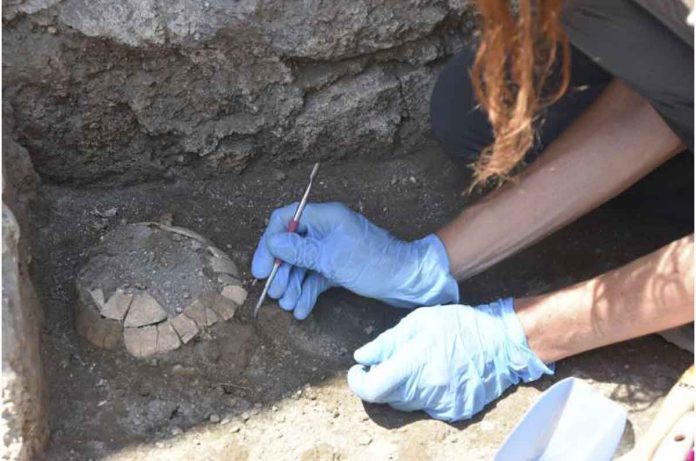Archaeologists in Pompeii discovered the remains of a pregnant tortoise that sought refuge in the ruins of a home destroyed by an earthquake in 62 AD, only to be covered by volcanic ash and rock 17 years later when Mount Vesuvius erupted.
The 14-centimeter-long (5.5-inch-long) Hermann’s tortoise and her egg were discovered during excavations of an area of the ancient city that was being rebuilt for the construction of public baths after the earthquake levelled Pompeii, officials said Friday.
Pompeii was then permanently destroyed by a volcanic eruption in AD 79.
Archaeologists believe the tortoise, a common species in southern Europe, sought refuge in the rubble of a home that was too badly damaged by the earthquake to be rebuilt.
The fact that she still had her egg suggested she died before finding a safe, hospitable place to lay it, according to Pompeii’s director general, Gabriel Zuchtriegel.
“This allows us to reflect on Pompeii after the earthquake but before the eruption, when many homes were being rebuilt, the entire city was a construction site, and evidently some spaces were so unused that wild animals could roam, enter, and try to lay their eggs,” he explained.
It’s not the first tortoise discovered in Pompeii, and Zuchtriegel says organic and agricultural materials discovered outside Pompeii’s urban centre are an important focus of current excavations and research.

According to him, the discovery of the tortoise adds to “this mosaic of relationships between culture and nature, community and environment that represents the history of ancient Pompeii.”
Along with the Pompeii archaeological site, the excavations in the Stabiane baths section of Pompeii are being carried out by the Free University of Berlin, the University of Napoli’s L’Orientale, and Oxford University.

